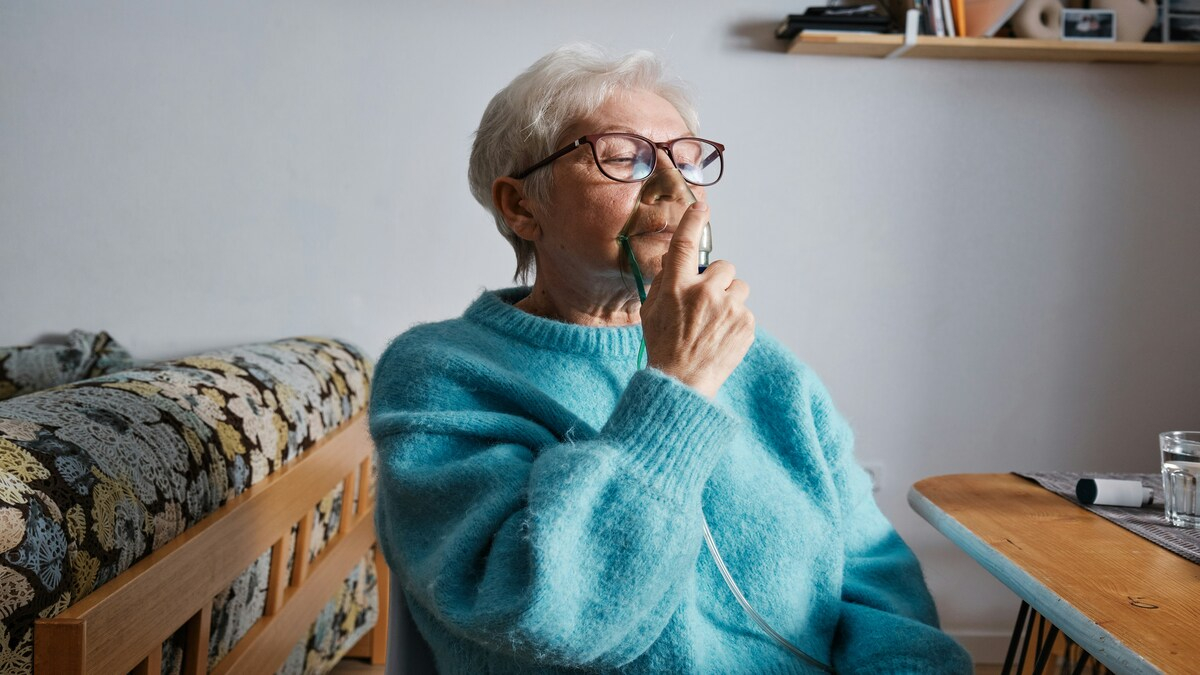Pulmonary rehabilitation is described as a holistic program that facilitates patients with chronic lung diseases like COPD, post-COVID-19 respiratory issues, etc., to complement the remedial processes in repairing their lung functioning and improving their quality of life. The program is specific to each person. Most programs are typically offered by a multidisciplinary team comprising pulmonologists, respiratory therapists, physical therapists, and psychologists, among other healthcare professionals.
Key components of pulmonary rehabilitation
- Exercise training: Exercise training aims to improve the strength of muscles, endurance, and overall physical fitness. It forms a core part of pulmonary rehabilitation. It may mean individualized exercise programs such as walking, cycling, swimming, or resistance training, for example.
- Education: Education forms a vital part of pulmonary rehabilitation. Patients know more about their lung condition, medicines, breathing techniques, and self-management strategies. Such knowledge can include individuals in the management of their health as well as inform decisions.
- Nutrition Counseling: Good nutrition translates directly into good lung health. Proper guidance on those dietary changes may enhance lung function from registered dietitians with a balanced diet including fruits, vegetables, and lean proteins.
- Psychological Counseling: Most persons affected by chronic lung diseases suffer a lot from psychosocial issues. They require psychological counseling, which will assist them in coping with the anxiety, depression, and other emotions that might be associated with their condition.
Medicare coverage for pulmonary rehabilitation
Medicare Part B covers pulmonary rehabilitation services for individuals who meet specific criteria:
- Chronic Obstructive Pulmonary Disease (COPD): If you have moderate to very severe COPD and have a referral from your doctor, Medicare will cover the costs of a pulmonary rehabilitation program.
- Post-COVID-19 Respiratory Issues: If you have experienced persistent respiratory symptoms, such as shortness of breath, cough, or fatigue, for at least four weeks after a confirmed or suspected COVID-19 infection, Medicare may cover pulmonary rehabilitation services.
Read more: Social Security Update: In 21 days the SSI direct payment will be out for the month of January.
Your costs in the Original Medicare
When you receive pulmonary rehabilitation services through Original Medicare, you’ll typically be responsible for:
- 20% Co-payment: You’ll pay 20% of the Medicare-approved amount for services provided in a doctor’s office.
- Hospital Outpatient Co-payment: If you receive services in a hospital outpatient setting, you’ll also pay a co-payment per session.
- Part B Deductible: You’ll need to meet the annual Part B deductible before Medicare begins covering your costs.
Important considerations
- Doctor’s Referral: In order to qualify for pulmonary rehabilitation coverage by Medicare, it’s necessary for you to have a referral from your doctor.
- Frequency of Services: How often services are covered may differ between Medicare and other insurers. Speak with your physician before determining what frequency is being recommended and what will be covered by Medicare.
- Additional Expenses: If services are recommended by your doctor, which Medicare does not cover or runs short, then expect to incur additional expenses.
To get a clear understanding of your specific costs, it’s crucial to discuss your situation with your doctor or healthcare provider. They can provide detailed information about your coverage and any potential out-of-pocket expenses.
Benefits of pulmonary rehabilitation
Pulmonary rehabilitation offers a wide range of benefits for individuals with chronic lung conditions. These benefits include:
- Improved lung function
- Increased exercise capacity
- Reduced shortness of breath
- Enhanced quality of life
- Reduced hospitalizations
- Improved mental health
If you or someone near you suffers from chronic lung diseases, consider having a word with your doctor regarding pulmonary rehabilitation. It is a wholesome program with a promise of better breathing, living a better life, and feeling better.
Read more: Big changes coming to social security in 2025: don’t miss these important modifications
